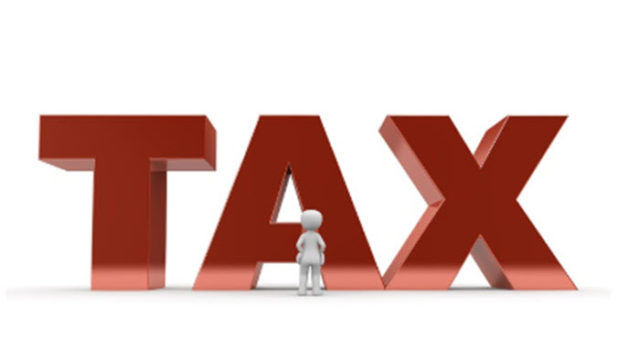In the past year, major changes have been made in the Costa Rican Tax Laws that affect directly all those foreigners who wish to invest in this country. Here we highlight the most important aspects you need to know.
Corporate tax
Most expats in Costa Rica keep their major assets like a home, car, or bank account in a “corporation.” The typical ones are the Limited Liability Company (Sociedad de Responsibility Limitada or SRL) or the Sociedad Anonima (S.A.). These were created because the owners could remain entirely anonymous and protect their Costa Rican assets from liability and foreign taxes.
But if you are not a legal resident yet, you will need the corporation to open a bank account and turn on the utilities. There is an initial cost for your attorney to create it and then its job is to “inactively” hold your asset.

The Costa Rican government not only taxes “active” corporations (those that actively do business), but also inactive ones. The tax increases slightly each year and is due annually at the end of January. 2022’s tax was ¢69,330, approximately US$109 per inactive corporation.
Luxury Home Tax or Impuesto Solidario para el Fortalecimiento de Programas de Vivienda
This tax targets “high-end” homeowners. The tax is based on the construction value of the home, but the threshold continually lowers each year. It may be “luxury” for some, but for most foreigners buying property, it would be nothing like a value you may think of back home. For 2022, all homes with a construction value over ¢133.000.000,00 (US$211,783 approx.) are required to pay this tax.
Construction value or “project value” means the total costs to the owner for the construction in its completed form and includes the cost of design, all building work, construction materials, building systems, and profit of the contractor and subcontractors, but does not include the cost of non-fixed furnishings or non-fixed equipment. This is different than the market value.
Taxpayers must enroll with the Tax Administration, then declare and pay the tax through the Virtual Tax Administration (ATV) site. Every three years the homeowners require an appraisal from an expert in luxury home tax calculations in order to update the value.
Capital Gains Tax
Costa Rica didn’t have a capital gains tax (except for developers) until 2019. The capital gains charge is 15% for residential properties and 30% for commercial properties. This amount is calculated off the sales profit made over your original purchase price. You are exempt if you are selling your primary residence, but you do have to prove you lived in it for 183 days or more each year. If you have a titled property purchased prior to July 1, 2019, you have the one-time option of paying a flat 2.25% of the sale price rather than the capital gain.
Restaurants, stores, hotels, and vacation rentals are categorized as commercial real estate. Basically, anything that is income producing, and therefore taxed at 30%. This is something to keep in mind if you are buying a vacation rental condo/home. It is best to talk to your Costa Rican CPA or lawyer to be clear regarding the income-generating asset and your income tax obligations with a vacation rental property.
The Mandatory Declaration of Beneficial Owners and Shareholders
All registered corporations (active and inactive) now need to annually declare their “shareholders”—making that once anonymous corporation is completely transparent. The government has added this law in their efforts to thwart money laundering from drug dealers and other illegal practices.
Many investors here keep their assets in an inactive corporation, but they may not be legal residents. Therefore, they do not have a DIMEX cedula (foreign resident ID). If you don’t have your residency you cannot apply for a digital signature (firma digital) card. If you do not have a digital signature card you cannot file the form on your own. So, it will be necessary to pay a lawyer with power of attorney to make the declaration for you every year.
High fines apply for non-compliance, from approximately US$2,300 up to US$76,000. The government is actively pursuing the application of these fines and lists of non-compliant companies have been made public, as a “last call” warning from the government on the Tax Administration website. The 2022 deadline is April 15th.

D-101 Income Tax Declaración Jurada del Impuesto sobre la Renta
Unless ex-pat retirees are generating an income in Costa Rica, the vast majority of them (and the digital nomads) do not file a Costa Rican income tax return. That is because the tax obligations are paid in your home country. However, if you own an inactive corporation, that is about to change. The government wants to now collect information regarding all the assets that inactive companies are holding.
All Costa Rican companies will be obligated to file an Income Tax Return D-101 simplified form for 2022 due March 15. If you are not a legal resident and want to file yourself, you will need to request a NITE number from the Ministry of Hacienda (treasury). Otherwise, you will have to pay an accountant every year to file this simple form.
Education & Culture tax
Inactive companies previously were not required to pay the education and culture tax, but now, since every company will need to file an income tax return, inactive companies will also be required to pay this assessment. It is calculated based on the net capital of a company, as follows:
- Up to 500,000 colons (US$778.84) — 750 colons tax (US$1.17)
- Over 500,000 but less than 2,000,000 (US$3,115.35) — 6,000 colons tax (US$9.35)
- Over 2,000,000 but less than 4,000,000 ($US6230.70) — 12,000 colons tax (US$18.69)
- Over 4,000,000 colons ($US6230.70) — 18,000 colons tax (US$28.04)
Basically, if your corporation holds your home or car, you are paying at the top of the scale. Granted it is not a large tax, but nonetheless it is a new one to keep up with.
VAT Tax or Impuesto de Valor Agregado (IVA)
Costa Rica has long had a sales tax of 13% on all receipts for goods. However, the VAT now applies for all services rendered in the country. Every legal service has a VAT tax. From your accountant to your attorney and your dentist to your realtor. The government taxes them 13% – so you will see that passed on to the client. Some businesses accept payments in cash to avoid this reporting and save you money.
How to avoid a number of these aforementioned inactive corporate obligations
You can choose to put your assets directly in your name or dissolve the current corporation you have. In fact, many ex-pats have recently paid high prices to dissolve their corporations (your corporation has to sell the assets to you, so you will be paying some hefty sales taxes, as well as the cost to dissolve it). The choice is something you should discuss with your Costa Rican attorney. There are still good reasons to have a corporation and good reasons not to. You just need to budget accordingly.

